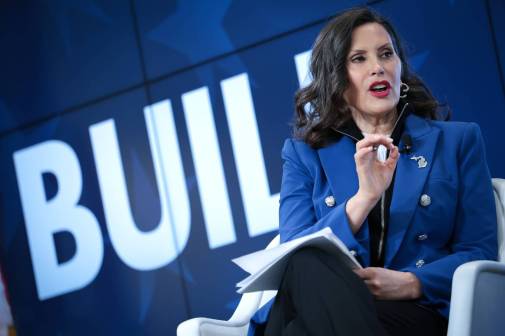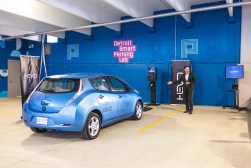Michigan launches autonomous vehicle development office

Michigan Gov. Gretchen Whitmer announced the formal launch of a new office designed to guide policy around autonomous vehicles, private-public transit partnerships and the infrastructure needed to support connected vehicles on roads and highways throughout the state, her office said Thursday.

Trevor Pawl (Michigan Office of Future Mobility and Electrification)
The new Office of Future Mobility and Electrification, which Whitmer created in a February executive order, will be led by Trevor Pawl, a former senior vice president of business innovation at PlanetM, the mobility branch of the Michigan Economic Development Corporation. Pawl will take the title of chief mobility officer, and will work alongside a council on future mobility and electrification created under the same executive order.
In addition to recommending strategic policies, Pawl will be tasked with furthering the state’s existing mobility initiatives, like the Michigan Department of Transportation’s efforts to roll out connected vehicle infrastructure along highways, the Department of Labor and Economic Opportunity’s efforts to recruit skilled workers and the MEDC’s business development programs with mobility startups.
“The Office of Future Mobility and Electrification will leverage our competitive advantages to make sure our state isn’t only a place where mobility solutions are born, it’s also where companies will find long-term success and support,” Pawl said in a press release. “While Michigan remains an undisputed leader in mobility, there is more work to be done, including increasing the state’s share of electric vehicle production, building a stronger pipeline of software engineering talent, and leveraging technology to reduce traffic crashes and fatalities.”
More than $91 million in PlanetM-issued grants have helped make Michigan, home to the U.S. auto industry, a proving ground for a wide range of mobility-focused startups over the last several years. But Pawl and his team will also be charged with correcting an imbalance in which only 6% of venture-capital funding toward mobility startups in Michigan goes toward software development.
The new office’s bet is that the sooner that investment in technology-based software increases, Michigan can deploy more connected vehicle-enabling infrastructure.
Pawl told StateScoop that Whitmer and her administration got the idea to create a mobility office from Detroit’s city government, which created its own office of mobility innovation in 2016. The statewide office, which is the first of its kind in the country, will align virtually all of Michigan’s mobility programming and policymaking under one roof.
“We saw that model work at the local level,” Pawl said. “The reason why this office exists is because there are 17 state departments that are doing something around the future of mobility and electrification. And all of these are good efforts, but they’re not all connected.”
The council on future mobility that will help guide the office is also an effort to consolidate more than 135 different “councils, boards and commissions within those 17 departments,” Pawl said.
“Anything we do should focus on building a stronger state economy with safer, more equitable and environmentally sound transportation,” he said. “Everything else flows in under that.”
This story is part of Digital Government: The Next Decade: A StateScoop & EdScoop Special Report.

This story was featured in StateScoop Special Report: Digital Government: The Next Decade (2020)






